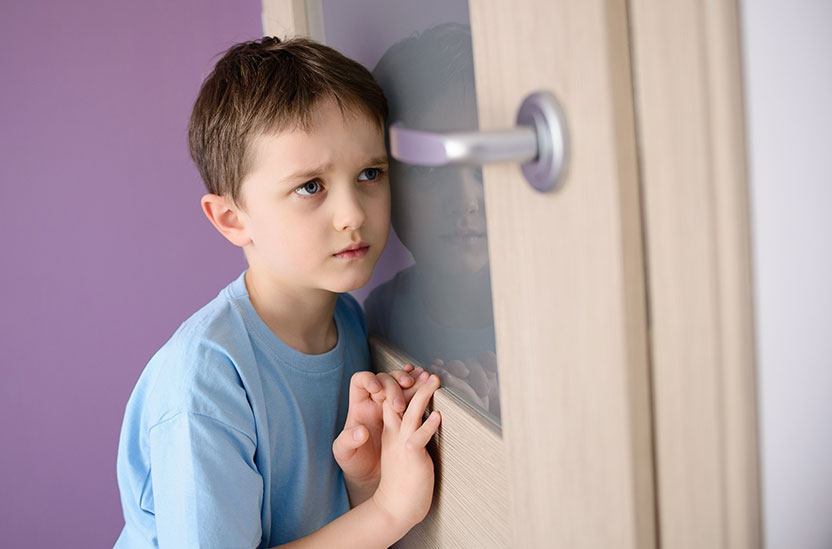De Facto Custody

“If the goal in a custody determination is the best interest of the child, child psychology and attachment theory simply cannot be subtracted from the equation.”
What Is De Facto Custody?
“Because of the extreme difficulties associated with bringing legal custody cases and proving biological parents are ‘unfit’ in the court process, twenty-four states to date and the District of Columbia have all enacted an equivalent form of the De Facto parent doctrine, to assist relative caregivers in protecting the children they have been raising. These laws provide that rather than having to prove the parent is “unfit”, if the relative or step parent has been supporting and raising the child for a significant period of time, the first step in proving his or her case has been met.
Remember, the guardianship of a child is granted as a direct result of the court finding the biological parent “unfit”, on record. Would it not be reasonable then, for the “burden of proof” to be upon the returning biological parent to prove a substantial change in circumstances since the entry of the guardianship? Would it not be prudent on the part of the court to demonstrate that termination of the guardianship is in the ‘best interest’ of the child in the context of the child’s physical, emotional and psychological well-being?
De Facto custodian is typically defined as the primary caregiver and financial supporter of a child who has resided with that person for at least (1) six months if the child is under age three; and (2) one year if the child is at least age three. If the judge finds that the person is a “de facto custodian”, then he or she has the same standing as a parent in the legal custody dispute. Custody is then determined based on the “best interests of the child”, a set of standards which should be clearly defined to avoid subjective rulings.
CLARIFYING AND NARROWING THE DEFINITION OF “BEST INTERESTS OF THE CHILD” STANDARD…
Courts across the country now recognizing the “Psychological Parent” Standard and
“Harm Standard” in the context of Best Interests of the child
A best interest of the child standard-which asks the judges to determine which individual would “best” serve a child’s “interests”- does not necessarily provide sufficient “special weight” [Legislation and Policy Vol. 12:43 Josh Gupta-Kagan] to the parent-child like relationship, the bond that has been formed between the child and his or her ‘psychological parent’. We know that abundant research, nationwide, unquestionably supports the “psychological parent-child relationship” as being imperative to a child’s entire well-being. As a result, many states now specifically address, within the context of their “best interest standards” when applying De Facto Law, the bond that has been established between the child and the third-party caregiver and the “impact” of severing that relationship. Language such as “probable harm”, “adversely affecting the child’s physical, psychological, emotional well-being” are typically included in many state’s BI legal standards. In addition, many states include guidelines that require judges to review histories of mental illness, long term drug use, domestic violence, and other habitual criminal behavior…Wyoming requires none of these guidelines when determining custody for a child raised in third party care where the custody is being challenged by a biological parent, regardless of their histories.
“Experts in child psychology, the Supreme Court, as well as other supreme courts, have acknowledged that the absence of biological filiation should not prevent a child from gaining the legal relationship he or she needs and deserves.”
(“Moreover, the United States Supreme Court and this Court have upheld that biological ties are not as important as parent-child relationships that give young children emotional stability.”) (81)
(81) See Michael H. v. Gerald D., 491 U.S. 110 (1989); In re T.J., 89 So 3d 744, 747 (Al. 2012)
[IN THE CASE OF BIOLOGY V. PSYCHOLOGY: WHERE DID MY “PARENT” GO?]
WHAT WE WANT TO AVOID – “VAGUENESS” IN THE BILL
“A ‘best interest’ of the child standard is notoriously vague, a quality which leads to unpredictable and subjective decision making, leading judges to consider factors such as “who “offers(s) a better neighborhood, better schooling, more financial capability…” [Legislation and Policy Vol. 12:43 Josh Gupta-Kagan]…“ a vague, subjective standard may lead to inconsistent rulings from court to court as well as state Supreme Court challenges. Focusing on the child’s “safety and well-being” invalidates the argument that “best interests” standards merely place the child with the “worthiest” members of society.
It is important to note that the “harm or detriment” standard referenced finds its roots in many Supreme Court cases. “Moreover, Supreme Court decisions such as Stanley, Smith, Quilloin and Lehr suggest that the ‘family relationship’ does not solely refer to the blood relation between parent and child.” [Villanova Law Review Vol. 39: p 737] It is the real tie – the reality of an ongoing relationship – that is crucial…and that demands protection of the state through law. In addition, every state where the De Facto Custody law was challenged, each and every State Supreme Court upheld the De Facto Law! Language such as “the state has a compelling interest to preserve the child-parent like relationship that exists between the child and his or her psychological parent(s)”; and further, “granting the petition is necessary to avoid probable harm from the adverse effects of “severing the secure and significant attachments that have formed between the child and the caregiver” is paramount. [Children’s Legal Rights Journal: Adapting to the Modern Family Vol.33]
WHY IS DE FACTO CUSTODY NECESSARY?
It is important to note that proving a biological parent ‘unfit’ is virtually impossible. “There is a global recognition that no clear standards exist…huge impact on the children… adversely affecting their lives for years to come.” Barbara Atwood, Vice Chair, National Conference of Commissioners on Uniform State Laws: [Nonparent Custody Act/ Guardianship and Other Protective Arrangement Act].
There are no clear guidelines in Wyoming courts governing third party custody proceedings. The lack of guidance often results in children being abruptly uprooted, removed from their stable loving homes, some after years…and sent off to live with people who are essentially strangers.
There are Wyoming judges who refuse to hear evidence that references the “best Interest of the child”, such as the on-going drug use and habitual criminal histories of the biological parents. We believe that this evidence is relative when discussing issues such as ‘probable harm’ to a child in relationship to “what is best for the child?”
The National Conference of State Legislators (NCSL) clearly state that “child welfare is a critical state responsibility and includes protecting the child…and ensuring that children have a safe, stable, and permanent living situation.” Any reasonable person would be compelled to ask why then, are these children not afforded the same protections as other children in our state? Why are their constitutional rights disregarded? The answer is simple – Wyoming current guardianship laws do not require judges to do so. In fact, they are discouraged from referencing “best interest” of the child during court proceedings pertaining to third party custody/guardianship.
Wyoming’s antiquated child custody laws adhere to the notion that children are ‘property’, “tying the judges’ hands”. As a result, it is the children who are forced to bear lifelong consequences.
“The severance of the child’s psychological attachment with a person, perceived as his or her parent, has catastrophic long-term social and emotional effects on the child…”[IN THE CASE OF BIOLOGY V. PSYCHOLOGY: WHERE DID MY “PARENT” GO?] Melissa Gros, Southern University Law Center.
“Severing the secure and significant attachments that form between a child and caregiver can have profoundly traumatic effects on the child. These include altered brain development, and impacted physical, emotional, and mental long-term development.” Barnett & Hamblen, supra note 84 (discussing the importance of the caregiver attachment); Understanding the Effects of Maltreatment on Brain Development; Removal From the Home, supra note 84 (explaining that removing a child from his or her ‘family’ can be just as traumatic as exposure to abuse and neglect, and can have negative effects that last a lifetime, including psychological and neurobiological effects associated with disrupted attachment.)
The long-range effects on a child victimized by a traumatic disruption of the psychological parent-child relationship include lack of self-esteem, trust and ability to care for others. These effects may ultimately lead to behavior disorders. Separations profoundly impact children because they have not yet developed the adult ability to cope with threats to their emotional security. Thus, it is not the biological tie that bonds a child to an adult, but the psychological relationship. The law, therefore, SHOULD PROTECT this relationship, regardless of whether or not the psychological parent is also the biological parent.” Curtis, supra note 16, at 152. These problems affect not only the individual, but society as well, because the child will interact with others and may eventually become a parent.” Goldstein, supra note 13, at 34, at 12. Children who have suffered multiple placements at a younger age may display disruptive, dissocial, delinquent or even criminal behavior. The inability of children to cope with such threats stems from lack of developed intellectual and reasoning capacities.. Consequently, they respond to any threat to their emotional security with fantastic anxieties, denial, distortion of reality, reversal or displacement of feelings – reactions which are no help for coping, but rather put them at the mercy of events.”
